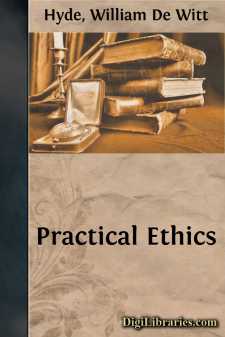Categories
- Antiques & Collectibles 13
- Architecture 36
- Art 48
- Bibles 22
- Biography & Autobiography 813
- Body, Mind & Spirit 141
- Business & Economics 28
- Children's Books 12
- Children's Fiction 9
- Computers 4
- Cooking 94
- Crafts & Hobbies 4
- Drama 346
- Education 46
- Family & Relationships 57
- Fiction 11826
- Games 19
- Gardening 17
- Health & Fitness 34
- History 1377
- House & Home 1
- Humor 147
- Juvenile Fiction 1873
- Juvenile Nonfiction 202
- Language Arts & Disciplines 88
- Law 16
- Literary Collections 686
- Literary Criticism 179
- Mathematics 13
- Medical 41
- Music 40
- Nature 179
- Non-Classifiable 1768
- Performing Arts 7
- Periodicals 1453
- Philosophy 64
- Photography 2
- Poetry 896
- Political Science 203
- Psychology 42
- Reference 154
- Religion 513
- Science 126
- Self-Help 83
- Social Science 81
- Sports & Recreation 34
- Study Aids 3
- Technology & Engineering 59
- Transportation 23
- Travel 463
- True Crime 29
Practical Ethics
Categories:
Description:
Excerpt
Ethics is the science of conduct, and the art of life.
Life consists in the maintenance of relations; it requires continual adjustment; it implies external objects, as well as internal forces. Conduct must have materials to work with; stuff to build character out of; resistance to overcome; objects to confront.
These objects nature has abundantly provided. They are countless as the sands of the seashore, or the stars of heaven. In order to bring them within the range of scientific treatment we must classify them, and select for study those classes of objects which are most essential to life and conduct. Each chapter of this book presents one of these fundamental objects with which life and conduct are immediately concerned.
A great many different relations are possible between ourselves and each one of these objects. Of these many possible relations some would be injurious to ourselves; some would be destructive of the object. Toward each object there is one relation, and one only, which at the same time best promotes the development of ourselves and best preserves the object's proper use and worth. The maintenance of this ideal union of self and object is our duty with reference to that object.
Which shall come first and count most in determining this right relation, self or object, depends on the character of the object.
In the case of inanimate objects, such as food, drink, dress, and property, the interests of the self are supreme. Toward these things it is our right and duty to be sagaciously and supremely selfish. When persons and mere things meet, persons have absolute right of way.
When we come to ideal objects, such as knowledge, art, Nature, this cool selfishness is out of place. The attempt to cram knowledge, appropriate nature, and "get up" art, defeats itself. These objects have a worth in themselves, and rights of their own which we must respect. They resent our attempts to bring them into subjection to ourselves. We must surrender to them, we must take the attitude of humble and self-forgetful suitors, if we would win the best gifts they have to give, and claim them as our own.
As we rise to personal relations, neither appropriation nor surrender, neither egoism nor altruism, nor indeed any precisely measured mechanical mixture of the two, will solve the problem. Here the recognition of a common good, a commonwealth in which each person has an equal worth with every other, is the only satisfactory solution. "Be a person, and respect the personality of others," is the duty in this sphere.
As we approach social institutions we enter the presence of objects which represent interests vastly wider, deeper, more enduring than the interests of our individual lives. The balance, which was evenly poised when we weighed ourselves against other individuals, now inclines toward the side of these social institutions, without which the individual life would be stripped of all its worth and dignity, apart from which man would be no longer man. Duty here demands devotion and self-sacrifice.
Finally, when we draw near to God, who is the author and sustainer of individuals, of science and art and nature, and of social institutions, then the true relation becomes one of reverence and worship....



